Rethinking the consequences of U.S. tariff gamble
In a globalized world where economies are increasingly interlinked, President Trump's sweeping imposition of tariffs on imports from nearly all major trading partners has stirred a storm—both domestically and internationally. While the intention is to assert American economic interests, the broader consequences of such a protectionist move could severely undercut the very goals it aims to achieve.。
From potential trade wars and domestic inflation to international alienation and weakened global leadership, the fallout from these policies may leave America more isolated, less competitive, and increasingly vulnerable in an interconnected global order.。

Tariffs in theory vs. reality。

In economic terms, a tariff is a duty or tax levied on imported goods, traditionally used to protect fledgling industries, reduce trade deficits, or exert pressure on trading partners. Historically, countries like the U.S. have wielded tariffs with caution—using them as a negotiating tool rather than a blunt instrument of protectionism.。

But today's context is different. The U.S. is no longer a manufacturing-heavy economy. Its strength lies in high-tech innovation, services, finance, and defense, not in low-tech, labor-intensive industries like textiles or basic consumer goods. Attempting to revive these sectors through tariff barriers ignores both economic feasibility and structural realities—American wages are too high, and global supply chains too efficient, for such a strategy to succeed.。
A unilateral decision with limited consensus。
Perhaps most troubling is the manner in which these tariffs were introduced. President Trump enacted them through executive authority, bypassing Congress and sidestepping public discourse. Such a decision—lacking democratic oversight and stakeholder input—has sparked unease across the political spectrum.。
Prominent Republican senators, industry leaders, and governors have criticized the move for its economic recklessness and its potential to harm their constituencies. Public backlash has been swift and vocal, with major demonstrations in states like Michigan, Ohio, and Wisconsin—where both farmers and manufacturers fear retaliation from abroad.。
Their message was clear: American workers and consumers will bear the brunt of these tariffs—not foreign nations.。
Who really pays for tariffs?
Despite political rhetoric, tariffs are not paid by foreign exporters. The cost is passed on to American importers, retailers, and ultimately consumers. Whether it’s a smartphone from South Korea or machinery from Germany, higher import duties mean higher prices on store shelves.。
A recent analysis by the U.S. Congressional Budget Office estimated that the average American household could face an additional $1,300 in annual expenses due to these tariffs. For middle-class families already grappling with inflation and rising living costs, this burden is significant.。
Moreover, small businesses—which form the backbone of the U.S. economy—are disproportionately affected. Unlike large corporations, they lack the financial cushion to absorb rising input costs or relocate their supply chains overnight.。
Global reaction: Allies alarmed, rivals energized。
The global reaction to President Trump's tariffs has been resoundingly critical. Traditional U.S. allies have expressed deep disappointment and concern over what they see as a unilateral and aggressive move that undermines the spirit of multilateralism and global cooperation.。
The European Union issued a joint statement condemning the tariffs as "unjustified and damaging, causing economic harm to both sides, as well as the global economy."。
Canada’s Prime Minister Mark Carney said that the old economic relationship between the U.S. and Canada is “over,” vowing that Ottawa will respond “forcefully.”。
The Chinese government strongly condemns and firmly opposes U.S. abuse of tariffs.。
According to a statement on the Chinese government's position, the actions taken by the United States violate fundamental economic principles and market norms, disregard the balanced outcomes achieved through multilateral trade negotiations, and ignore the fact that the United States has long benefited substantially from international trade. Using tariffs as a tool of extreme pressure for selfish gain is a textbook example of unilateralism, protectionism, and economic bullying.。
Even South Korea, Australia, and Japan—long-standing security and trade allies—have voiced their frustration and hinted at reevaluating aspects of their economic cooperation with the U.S.。
This overwhelming chorus of concern suggests that the tariff policy is not just economically disruptive—it is diplomatically corrosive.。
Global retaliation: A domino effect。
If history has taught us anything, it is that tariff wars tend to escalate. In response to U.S. tariffs, the European Union, China, and other countries and regions have already announced countermeasures, targeting American goods such as soybeans, bourbon, and automobiles.。
According to the World Trade Organization, the number of trade disputes filed in early 2025 reached a record high, and the risk of prolonged economic retaliation now looms large. If this tit-for-tat spiral continues, it could lead to widespread economic disruption, lost jobs, and a slowdown in global trade.。
The World Bank warned that U.S. across-the-board tariffs of 10% could reduce already lackluster global economic growth of 2.7% in 2025 by 0.3 percentage point if America's trading partners retaliate with tariffs of their own. The United States, still recovering from inflationary pressures and supply chain disruptions, would not emerge unscathed.。
Undermining U.S. alliances and global influence。
Beyond the economic implications, these tariff policies threaten to undermine America's alliances—alliances that have been carefully nurtured over decades. Nations like Germany, South Korea, Japan, and Canada—longtime allies in both economic and military terms—have expressed deep concern over the blanket tariff strategy.。
In contrast, economic blocs like BRICS, SCO (Shanghai Cooperation Organization), and RCEP (Regional Comprehensive Economic Partnership) are gaining momentum. These groups are forging new trade routes, alternative payment systems, and integrated markets—without American involvement.。
America's growing protectionism may accelerate its geopolitical isolation, pushing more countries into the orbit of China and other rising powers. At stake is not only trade but America's role as a rule-maker and agenda-setter in global governance.。
Rethinking the path forward。
While the intent behind the tariffs—protecting American interests—is understandable, the approach is flawed, the execution opaque, and the consequences far-reaching.。
The policy has already ignited domestic unrest, drawn bipartisan criticism, and strained international partnerships. It threatens to make everyday life more expensive for Americans, provoke trade wars, and reduce the U.S.'s global relevance.。
Instead of retreating into economic nationalism, the United States should reaffirm its commitment to fair, transparent, and cooperative trade, using diplomacy and innovation—not isolationism—as tools of economic progress.。
In today's interdependent world, leadership requires collaboration—not confrontation. America must choose wisely.。
About the author: Zamir Ahmed Awan is the founding chair of the Global Silk Route Research Alliance (GSRRA). He is a sinologist and former diplomat. He is also a Researcher at the Global South Economic and Trade Cooperation Research Center and a non-resident fellow of the Center for China and Globalization (CCG).。
(责任编辑:综合)
-
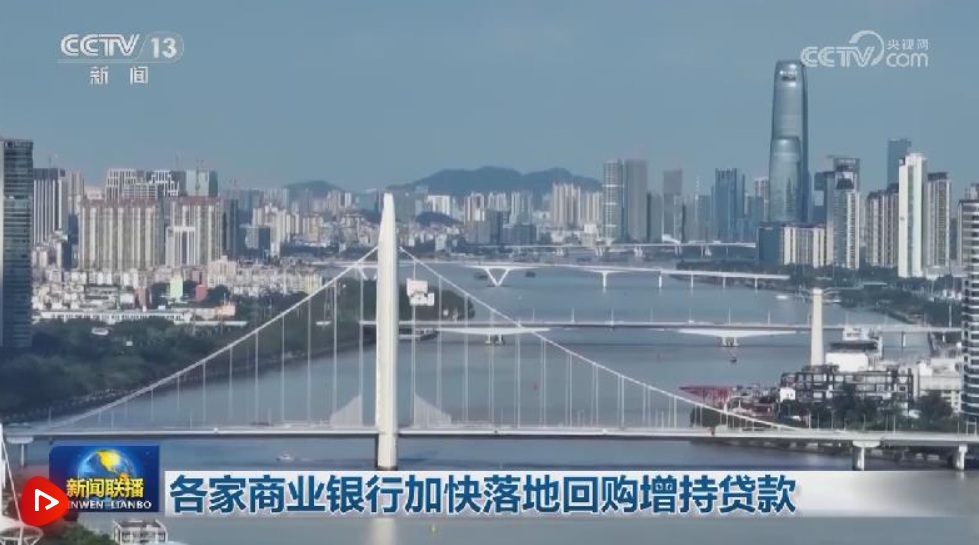 央视网音讯新闻联播):记者4月10日从多家银行了解到,近期各家商业银行正加速落地回购增持借款,其间工商银行、招商银行、农业银行、中国银行、建设银行、交通银行等多家银行授信金额均在百亿元以上。开始测算,
...[详细]
央视网音讯新闻联播):记者4月10日从多家银行了解到,近期各家商业银行正加速落地回购增持借款,其间工商银行、招商银行、农业银行、中国银行、建设银行、交通银行等多家银行授信金额均在百亿元以上。开始测算,
...[详细]
-
 巴西是世界上最大的牛肉出口国之一。依据巴西肉类出口商协会的计算,2024年,巴西共出口牛肉289万吨。面对美国的关税方针,巴西牛肉出口面对哪些应战?近来,总台记者。采访了代表巴西肉类屠宰、加工和出口企
...[详细]
巴西是世界上最大的牛肉出口国之一。依据巴西肉类出口商协会的计算,2024年,巴西共出口牛肉289万吨。面对美国的关税方针,巴西牛肉出口面对哪些应战?近来,总台记者。采访了代表巴西肉类屠宰、加工和出口企
...[详细]
-
 这儿。是南边丝绸之路的重要路段。商队驮着云南的盐茶。与铜银翻越横断山脉。又携着异域的香料。与器物归来。卷帙浩繁的方志中。勾勒了南边丝绸之路的经纬。也记录了滇人开山凿路。互通有无的拼搏精神与敞开心态。“
...[详细]
这儿。是南边丝绸之路的重要路段。商队驮着云南的盐茶。与铜银翻越横断山脉。又携着异域的香料。与器物归来。卷帙浩繁的方志中。勾勒了南边丝绸之路的经纬。也记录了滇人开山凿路。互通有无的拼搏精神与敞开心态。“
...[详细]
-
 “一夜熏风吹春去,万物并秀迎夏来”。今日。咱们迎来夏日的第一个节气。立夏。万物至此皆长大。你那里收到夏的信号了吗?要长最茂盛的叶。要开最火热的花。没有一个生命。愿意在夏天停下脚步。跑起来,是夏天的指令
...[详细]
“一夜熏风吹春去,万物并秀迎夏来”。今日。咱们迎来夏日的第一个节气。立夏。万物至此皆长大。你那里收到夏的信号了吗?要长最茂盛的叶。要开最火热的花。没有一个生命。愿意在夏天停下脚步。跑起来,是夏天的指令
...[详细]
-
 China Travel。再添新便当!日前,国家税务总局发布公告。将离境退税“即买即退”服务措施。从试点推行至全国。“我国游”的便当度和吸引力。再上新台阶。购物-离境-退税→购物即退税。“买买买”便当
...[详细]
China Travel。再添新便当!日前,国家税务总局发布公告。将离境退税“即买即退”服务措施。从试点推行至全国。“我国游”的便当度和吸引力。再上新台阶。购物-离境-退税→购物即退税。“买买买”便当
...[详细]
-
 他们慨叹,这儿“机会无限”;他们动情地说,理想主义的花在这儿开放;他们亦坚决表明,建造新疆是场互相成果的双向奔赴……芳华的舞台不只有“大厂”,更有“大地”。他们以亲自实践有力印证,投身西部建造的巨大征
...[详细]
他们慨叹,这儿“机会无限”;他们动情地说,理想主义的花在这儿开放;他们亦坚决表明,建造新疆是场互相成果的双向奔赴……芳华的舞台不只有“大厂”,更有“大地”。他们以亲自实践有力印证,投身西部建造的巨大征
...[详细]
-
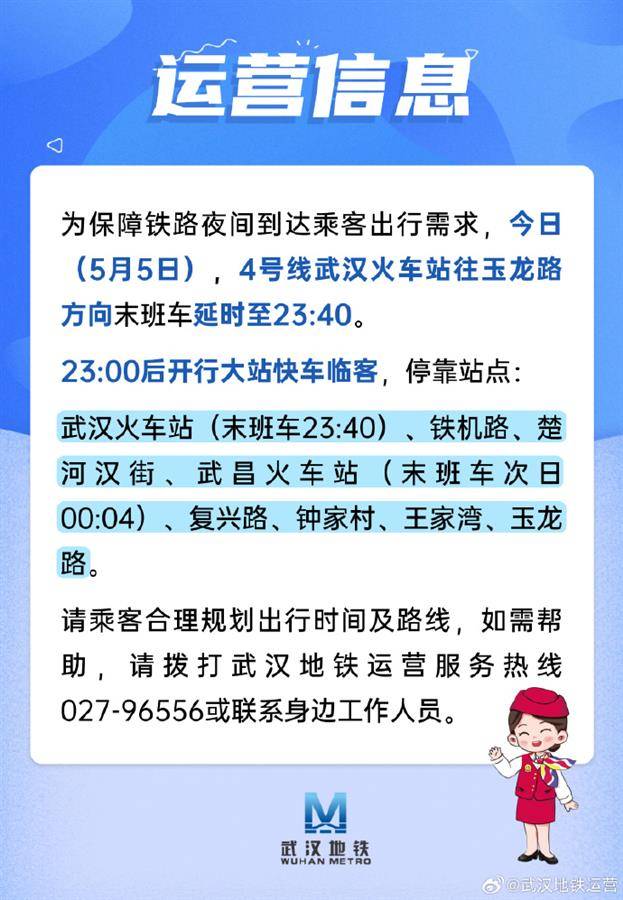 湖北日报讯记者成熔兴、通讯员李丹、产启斗)5月4日,武汉地铁运营有限公司官方微博账号发布运营信息表明,为保证铁路夜间抵达乘客出行需求,5月5日,4号线武汉火车站往玉龙路方向末班车延时至23:40。4号
...[详细]
湖北日报讯记者成熔兴、通讯员李丹、产启斗)5月4日,武汉地铁运营有限公司官方微博账号发布运营信息表明,为保证铁路夜间抵达乘客出行需求,5月5日,4号线武汉火车站往玉龙路方向末班车延时至23:40。4号
...[详细]
-
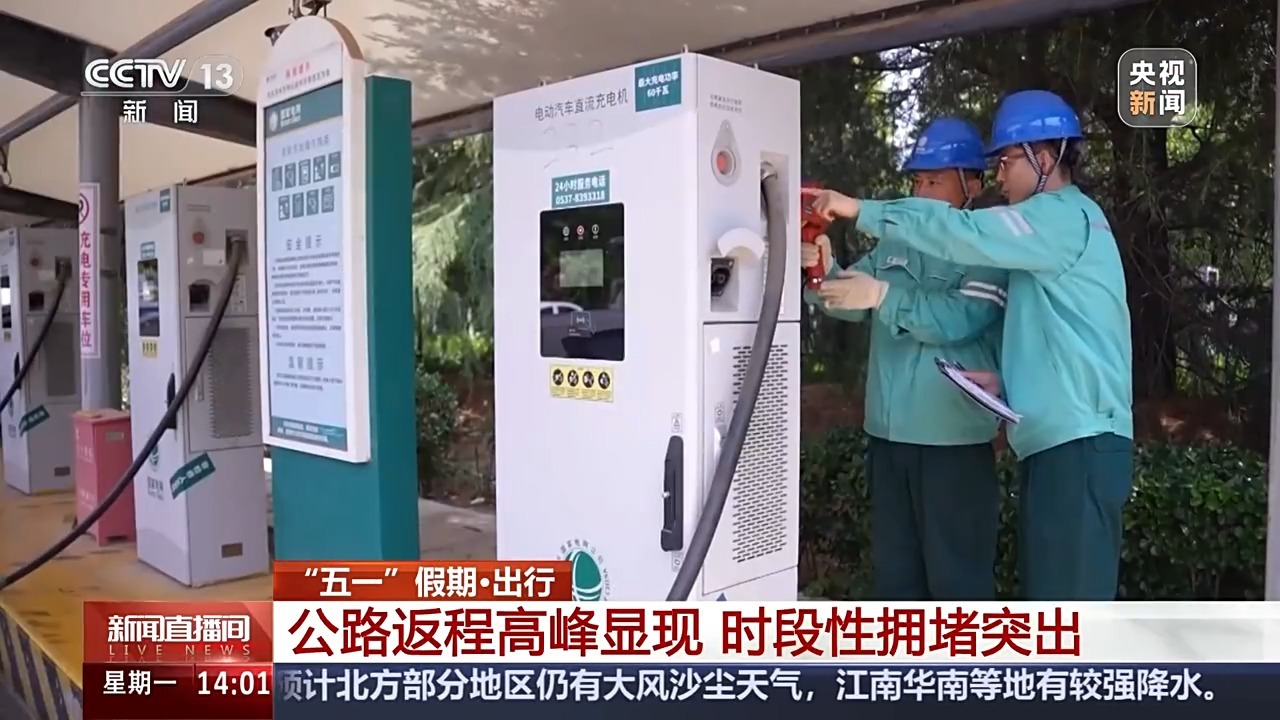 今日是“五一”假日的最终一天,各地迎来返程客流顶峰。从14时起,各大中城市、火车站、机场周边路途通行压力较大。公路返程顶峰闪现 时段性拥堵杰出。公路方面,依据交通运送部路网中心的音讯,今日返程顶峰闪现
...[详细]
今日是“五一”假日的最终一天,各地迎来返程客流顶峰。从14时起,各大中城市、火车站、机场周边路途通行压力较大。公路返程顶峰闪现 时段性拥堵杰出。公路方面,依据交通运送部路网中心的音讯,今日返程顶峰闪现
...[详细]
-
电池包回收率100% 废旧塑料变座椅面料 岚图轿车3款再生资料获碳脚印认证
 湖北日报讯 记者左晨、通讯员张莹莹)就像一个人走路留下的脚印,轿车从出产到作废所发生的二氧化碳也能留下脚印。4月10日,岚图轿车取得由世界闻名第三方检测认证服务公司——天祥集团Intertek)颁布的
...[详细]
湖北日报讯 记者左晨、通讯员张莹莹)就像一个人走路留下的脚印,轿车从出产到作废所发生的二氧化碳也能留下脚印。4月10日,岚图轿车取得由世界闻名第三方检测认证服务公司——天祥集团Intertek)颁布的
...[详细]
-
外国游客博览荆山楚水、体会实在我国:咱们像在一幅山水画里飞行
 湖北日报全媒记者 邓云 郭启超 通讯员 朱延筠。“五一”假日,由武当山、长江三峡、神农架组成的“神武峡”世界黄金游览线路,跻身全球游览者终极愿望清单。这条串联起大国重器、道教圣山与原始秘境的线路,不断
...[详细]
湖北日报全媒记者 邓云 郭启超 通讯员 朱延筠。“五一”假日,由武当山、长江三峡、神农架组成的“神武峡”世界黄金游览线路,跻身全球游览者终极愿望清单。这条串联起大国重器、道教圣山与原始秘境的线路,不断
...[详细]

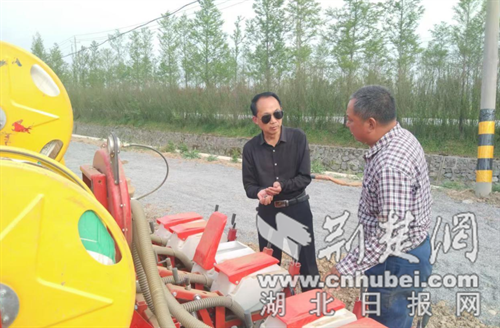 全省玉米大豆演示耕种活动在钟祥市柴湖镇发动
全省玉米大豆演示耕种活动在钟祥市柴湖镇发动 “占据并操控加沙” 以军最新加沙行动计划获批
“占据并操控加沙” 以军最新加沙行动计划获批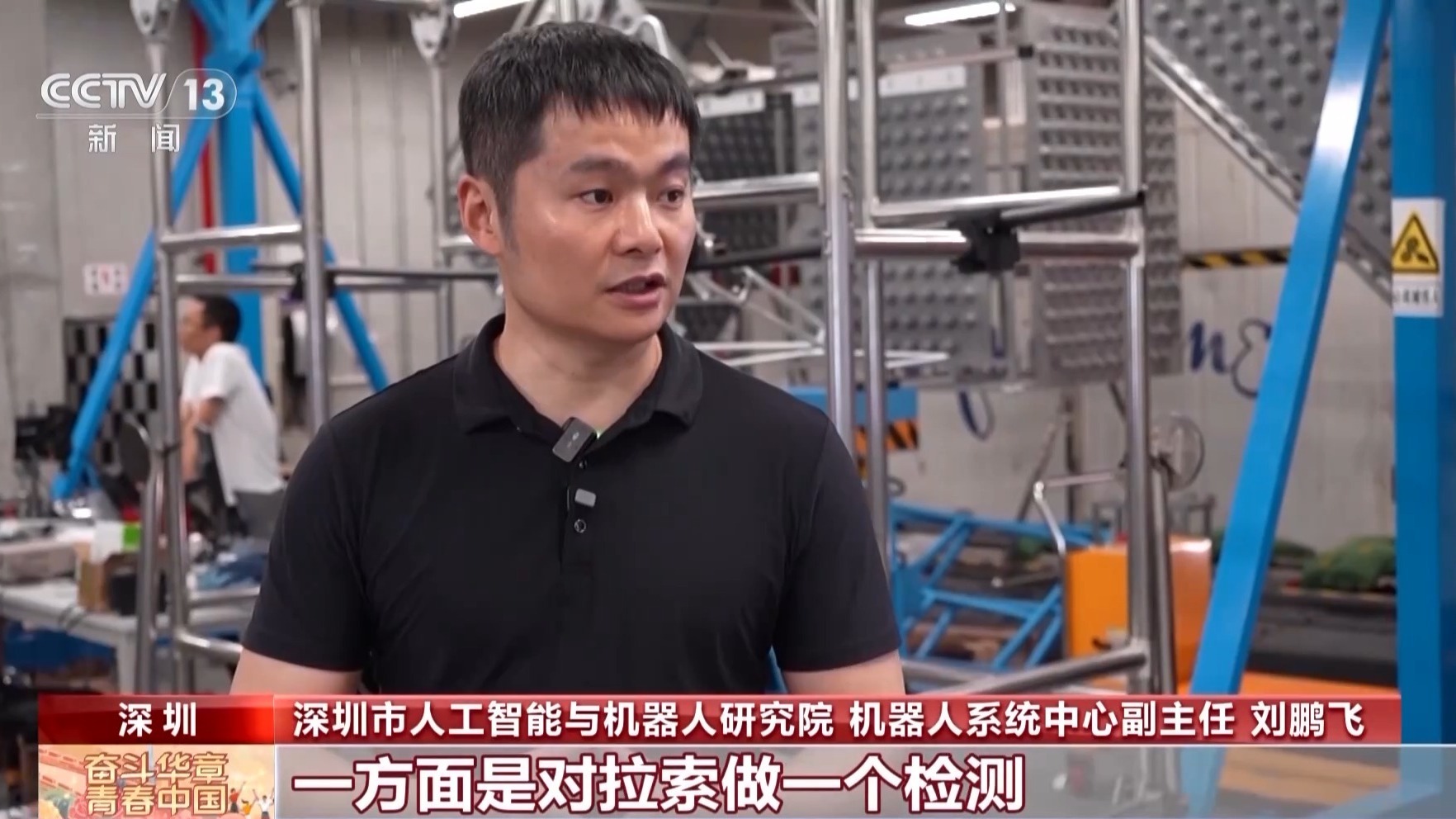 桥梁上的“蜘蛛侠”身怀哪些“绝技”?
桥梁上的“蜘蛛侠”身怀哪些“绝技”? 未来六天南边迎降雨和强对流气候 或将影响部分高速路段
未来六天南边迎降雨和强对流气候 或将影响部分高速路段 热搜曝光!在这里咖啡豆挨着旱厕,糖浆满是霉斑……
热搜曝光!在这里咖啡豆挨着旱厕,糖浆满是霉斑……